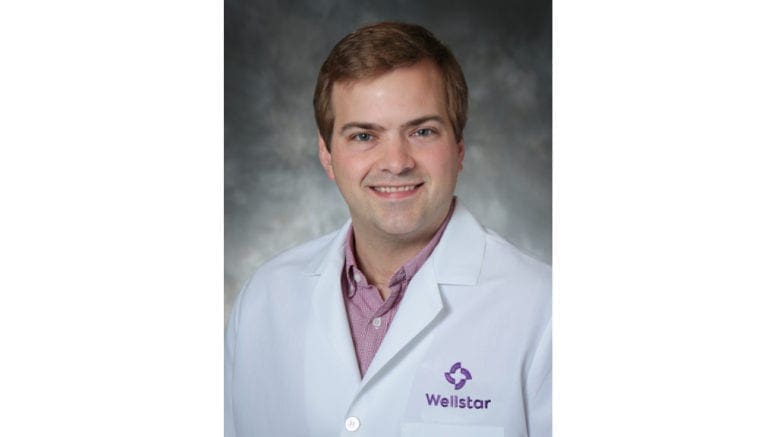The Courier spoke with Dr. Jonathan Peeples, the Director of Telepsychiatry for Wellstar Health Systems about suicide prevention.
Dr. Peeples said that over the past year Wellstar has adopted a program called the Zero Suicide initiative throughout the organization as a whole.
“The Zero Suicide initiative is something that Wellstar is in the process of implementing,” Dr Peeples said. “And it’s really about creating a culture of suicide prevention across the entire organization. It’s not limited to mental health providers. So we’re really trying to find ways to decrease suicide through the organization as a whole.”
“For example, we know that 20 percent of people who kill themselves are in contact with mental health providers within a month before they die, but 45 percent are in contact with primary care providers within a month before they die,” Peeples said. “So we felt like it was really important to have our interventions go across the whole organization, every specialty, and really try to find different ways to prevent suicide organization-wide.”
Asked how patients who might be at risk are brought into the program, Peeples said, “It’s really not a specific program. It’s a collection of different interventions throughout the organization that can decrease suicide.”
“For example, we have some primary mental health services integrated in primary care, and those have actually been in place prior to implementation [of the Zero Suicide initiative,” he said. ” Something that’s new with the program is we have implemented universal suicide screening in all of our emergency departments.”
“The Joint Commission requires people coming into the emergency department who have a primary behavioral health or substance use disorder complaint to be screened for suicide,” Peeples said.
“But Wellstar really believes that it’s important to screen everyone for suicide because a lot of people who killed themselves are coming in with stomach pain or headache or some kind of physical problem.”
He said Wellstar staff are being trained in what questions to ask to screen for suicide risk in a patient.
“We meet once a month as part as the implementation team to check the status of projects and to discuss new projects as part of the effort,” said Peeples.
Suicidal thoughts since the pandemic began
“There’s a study that looked at suicidality and mental health concerns in general in June 2020, and it found that 40 percent of US adults reported struggling with mental health issues or substance use issues … and 11 percent of adults have seriously considered suicide,” Peeples said.
“Since the pandemic started 25 percent of people who are 18 to 24 have seriously considered suicide,” he said.
Suicide and Race
“Traditionally, suicide is more common in non-Hispanic whites, American Indians and Native Alaskans,” he said. “But something we’ve seen since the pandemic started is that suicidal ideation has actually been higher in Hispanic people of any race and non-Hispanic black people,” he said. “And so we have we have the stats that mental illness is getting worse in times of COVID.”
Why are suicidal thoughts increasing?
“The studies haven’t looked at the causes, specifically, but I think that just generally economic concerns or health concerns or loss of loved ones or just general stress with the pandemic, combined with political concerns, social injustice, all those things can contribute to worsening mental health and can even lead to suicidal thoughts,” Peeples said.
What can be done to prevent suicide?
The Courier asked Dr. Peeples what people struggling with suicidal thoughts, and their family members, can do.
“For people who are actually struggling with mental illness, I would say that mental illness is real,” he said. “And there are treatments that work, both therapy and medication, depending on the condition. But the first step of getting into treatment is telling someone you trust.”
“You can partner with your healthcare provider on mental wellness, and that doesn’t have to be a psychiatrist or a psychologist. It can be a primary care doctor,” he said. “So I think just feeling comfortable telling someone what you’re feeling is an important first step, and that people shouldn’t feel like they have to do it on their own.”
He said that the best thing friends and family can do if they suspect a loved one is having suicidal thoughts is to ask them directly. That can provide a start for the process of getting help.
“But I think another important thing is something we call reducing access to lethal means, and that means if someone is having suicidal thoughts, and there’s a gun in the house, it’s best to take the gun out or to put it in a safe,” he said.
Peeples said that the person at risk of suicide should not know the combination of the safe.
“[This] can be really helpful in preventing suicides because in America, slightly over 50 percent of suicides are from firearm related causes,” he said.
Suicide in Cobb County
After the interview a representative of Wellstar Health Systems sent these comparisons in the rate of suicide nationally versus that of Cobb County. The data had been compiled previously by Dr. Peeples for a presentation:
- The United States suicide rate is approximately 14.2/100,000
- The rate in Cobb County from 2012 to 2016 was 11.2/100,000
- Cobb did see a steady increase from 66 in 2012 to 97 in 2016, an increase of 47 percent
